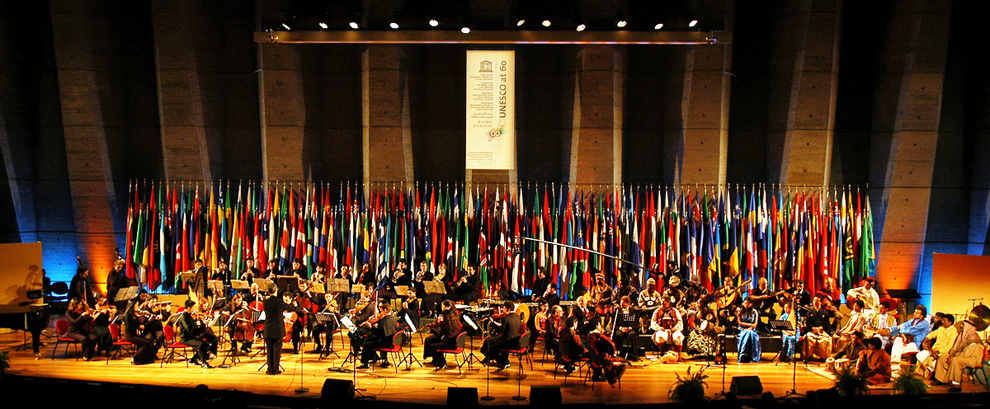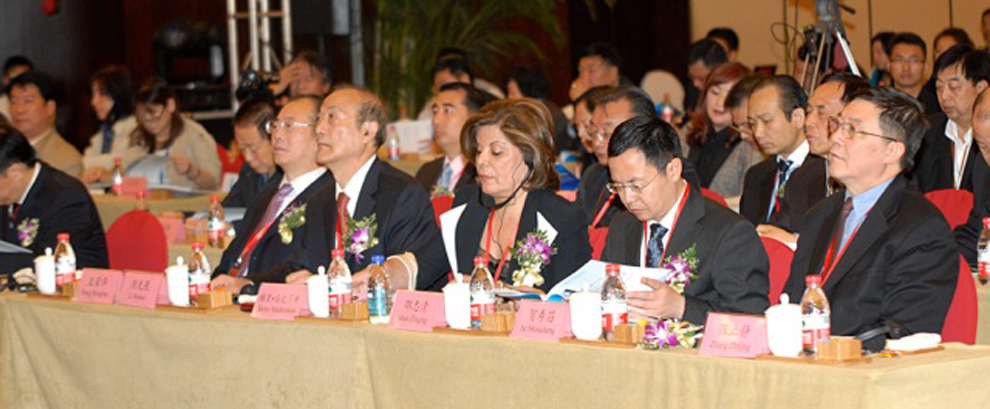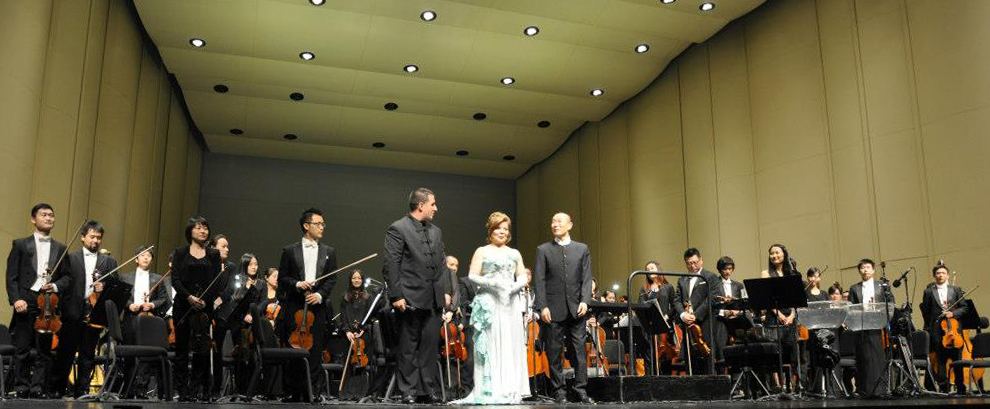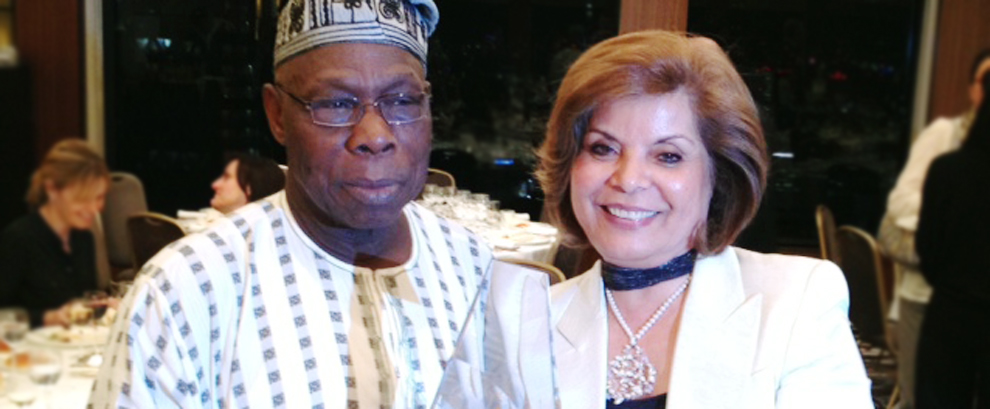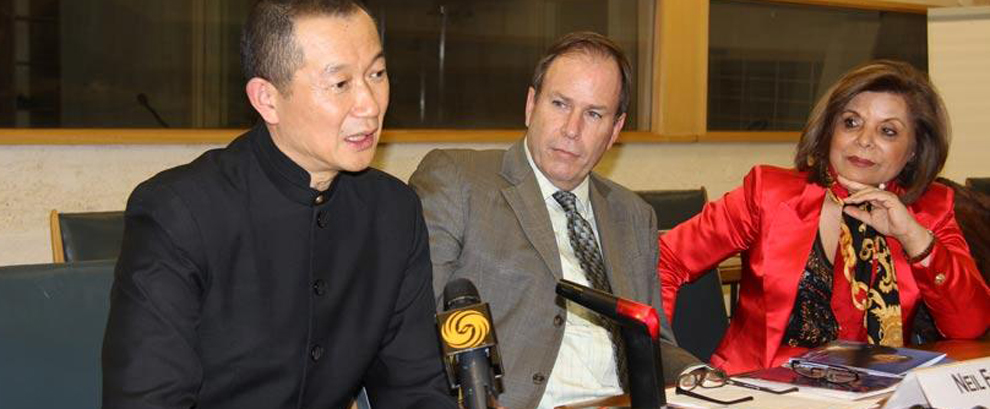Huffington Post
By Trita Parsi
Israel does not have the military capability to successfully eliminate Iran’s nuclear program. But its threats are strangling diplomatic alternatives.
In an interview with Jeffrey Goldberg of the Atlantic, incoming Israeli Prime Minister Benjamin Netanyahu claimed to have told President Barack Obama that either America stops Iran or Israel will. Not surprisingly, the interview sparked quite a controversy and only a day later, General David Petraeus told the Senate Armed Services Committee that “the Israeli government may ultimately see itself so threatened by the prospect of an Iranian nuclear weapon that it would take preemptive military action to derail or delay it.”
So once again, in spite of President Obama’s best efforts, the military option was put back on the table and the atmosphere for dealing with Iran was turned into “Do as we say — or else…” Even if the president wants to give diplomacy a chance, disbelievers have been quick to limit Obama’s options by seeking to set arbitrary deadlines for negotiations — or by threatening Israeli military action if America doesn’t act with its military might.
Reality is, however, that talk of an Israeli military option is more of a bluff than a threat — but it is a bluff that never seems to stop giving.
Israel does not have the military capability to successfully eliminate Iran’s nuclear program. Even the most successful bombing campaign would only set back the known program for a few years — without affecting any potential clandestine program. This is not classified information. Military experts are well aware of Israel’s capabilities — and its limits.
Yet, the threat of military action, or rather the bluff, serves a purpose: Threats of military action militarizes the atmosphere. It creates an environment that renders diplomacy less likely to succeed — it may even prevent diplomacy from being pursued in the first place.
In the Iranian case, Netanyahu’s tough talk undermines the Obama administration’s prospects for diplomacy in the following ways.
Getting to the negotiating table has proven an arduous task for the US and Iran. Both sides are currently testing each other’s intentions, asking themselves if the other side is serious about diplomacy or if the perceived desire for talks is merely a tactical maneuver to either buy time or build greater international support for more confrontational policies down the road. From Tehran’s perspective, uncertainty about Washington’s intentions during the Bush administration was partly fueled by the insistence of the military option remaining on the table. Tehran seemed to fear entering negotiations that could have been designed to fail, since that could strengthen the case for military action against Iran.
Today, talk of Israeli strikes has similar effects. Tehran has repeatedly failed to appreciate the policy differences between Washington and Tel Aviv, oftentimes seeing them as either a perfectly coordinated team or as a single entity. Consequently, explicit or implicit threats of Israeli military action reduce Tehran’s confidence in Washington’s intentions.
Furthermore, Iran’s sense of a threat from the US (and in extension Israel) is believed to be one of the driving forces of Iran’s nuclear program. Whether Iran seeks a weapon or a civilian program that provides Iran with a weapons capability, the program’s existence provides Tehran with a level of deterrence against the perceived US threat. The Obama administration’s approach seems to have been to reduce Iran’s sense of threat in order to kick-start negotiations. The threat of Israeli military action does the opposite — it fuels Iranian insecurity and closes the window for diplomacy.
Moreover, Israel uses this threat to pressure Washington and the EU to act tough. This has been a cornerstone of Israeli policy towards Iran since the mid-1990s. Even though Israel is reluctant to put itself on the frontline against Iran, fearing that this would counter its message that Iran is the world’s and not just Israel’s problem, it also fears that the absence of Israeli pressure would cause the West to go soft on Iran. Hence, Israel keeps the pressure on the West — by threatening military action – in order for the West to keep pressuring Iran. However, under the current circumstances, Israeli pressure may compel the Obama administration to adopt a confrontational approach that is incompatible with the diplomatic strategy President Obama seems to prefer.
Finally, Netanyahu — as well as hawks in Washington — are using the threat of Israeli military action to create arbitrary deadlines for negotiations with Tehran combined with exaggerated expectations of what diplomacy must achieve. The message of Israeli hawks has been that it can only afford to give diplomacy “a few months,” meaning that whatever sanctions and confrontation has failed to achieve with Iran in the past 30 years, must miraculously be obtained after only a few months of negotiations — otherwise Israel will take military action.
This logic does two things. First, it brings us back to the foreign policy approach of the Bush administration in which diplomacy was treated with suspicion and skepticism, and military confrontation was viewed as a policy option with guaranteed success. Second, it ensures that diplomacy fails by denying it the time and space it needs to succeed and by setting the bar too high.
This does not mean that Israel does not have legitimate reasons to fear Iran’s nuclear advances — on the contrary. But what lies at the heart of Israel’s maneuvers is not necessarily the fear of a nuclear clash, but the regional and strategic consequences nuclear technology in Iranian hands will have for Israel.
In spite of its rhetoric, Israel views the regime in Tehran as rational, calculating and risk-averse. Even those Israeli officials who believe that Iran is hell-bent on destroying the Jewish state recognize that Tehran is unlikely to attack Israel with nuclear weapons due to the destruction Israel would inflict on Iran through its second-strike capability.
The real danger a nuclear-capable Iran brings with it for Israel is twofold. First, an Iran with nuclear capability will significantly damage Israel’s ability to deter militant Palestinian and Lebanese organizations. Gone would be the days when Israel’s military supremacy would enable it to dictate the parameters of peace and pursue unilateral peace plans.
This could force Israel to accept territorial compromises with its neighbors in order to deprive Iran of points of hostility that it could use against the Jewish state. Israel simply would not be able to afford a nuclear rivalry with Iran and continued territorial disputes with the Arabs at the same time.
Second, the deterrence and power Iran would gain by mastering the fuel cycle could compel Washington to cut a deal with Tehran in which Iran would be recognized as a regional power and gain strategic significance in the Middle East at the expense of Israel. This has been a major Israeli fear since the end of the Cold War, when Israel’s strategic utility to Washington lost considerable justification due to the absence of a Soviet threat. Under these circumstances, US-Iran negotiations could damage Israel’s strategic standing, since common interests shared by Iran and the US would overshadow Israel’s concerns with Tehran and leave Israel alone in facing its Iranian rival. The Great Satan will eventually make up with the ayatollahs and forget about the Jewish state, Israeli officials fear.
Netanyahu’s threat of stopping Iran if Obama doesn’t should be seen in light of the Israeli rights’s fear of a US-Iran deal. Talk of Israeli military action has not coincided with major advances in Iran’s nuclear program, but rather with hints of an American preparedness to strike a compromise with Tehran that would grant it the dreaded know-how and limit Israel’s strategic maneuverability.
The flaw in the Netanyahu’s approach, however, is its underestimation of how US-Iran diplomacy can significantly alter Iran’s posture towards the Jewish state and reduce the threat it faces from Tehran. Therein lies the opening for Israel’s new prime minister that carries far greater promise for Israel’s security than efforts to complicate Washington’s
Kazakhstan’s Surprising Role in Resolving the Nuclear Stand-off with Iran
By M.K. Bhadrakumar, Asia Times
April 13, 2009, Printed on April 14, 2009
It is again early spring in the Central Asian steppes. There is a deceptive calm, but all signs are that the Great Game is bestirring from its slumber. The United States is focusing on the key Central Asian country of Kazakhstan, to stage a strategic comeback in the region. Prospects are brighter than ever as Kazakhstan is edging closer to the chairmanship of the Organization of Security and Economic Cooperation in Europe (OSCE) next year. The OSCE leadership brings Kazakhstan into the forefront of the Western strategies in Eurasia — and out of Russian orbit. The war in nearby Afghanistan provides the backdrop for the US’s proactive diplomacy. But that, too, is deceptive. It seems the US is also probing a solution to the Iran nuclear problem with Kazakhstan’s helping hand. The urgency is great and President Barack Obama has already hinted that he intends to pay a visit to Kazakhstan, the first ever to the steppes by an American president. According to the Wall Street Journal, the Obama administration is “carefully considering” the setting up of an international uranium fuel bank in Kazakhstan, which could form the exit strategy for the historic US-Iran standoff. That is why the visit by the Iranian President Mahmud Ahmadinejad to Astana, Kazakhstan, on Monday assumes exceptional importance. In bits and pieces, a stray thought has been surfacing in the recent months in the US discourses over the situation surrounding Iran. It sought a rethink of Washington’s insistence on Iran jettisoning its pursuit of uranium enrichment as a pre-requisite of commencement of direct talks between the two countries. This was borne out of a growing realization that the US insistence was no longer tenable. A logjam has indeed developed as it became clearer by the day that within the fractious Iranian opinion there is virtual unanimity when it comes to the continuance of the country’s nuclear program, and effecting a regime change in Tehran didn’t necessarily alter Iran’s policies. The Obama administration faces the reality that unless the impasse is broken somehow, the standoff continues. The standoff worked to Iran’s advantage only insofar as the country speeded up its nuclear program ever since the series of United Nations (UN) Security Council resolutions since 2006 began forbidding Iran from enriching uranium. Iran today has installed over 5,500 centrifuges and built up a stockpile exceeding 1,000 kilograms of low-enriched uranium. It now appears that the US might cede to Iran’s nuclear program. The Wall Street Journal reported last Friday that as part of a policy review commissioned by Obama, “diplomats are discussing whether the US will eventually have to accept Iran’s insistence on carrying out the [enrichment] process, which can produce both nuclear fuel and weapons-grade material”. The newspaper assessed that the Obama administration’s message to Tehran is increasingly shaping up as “Don’t develop a nuclear weapon” – a nuanced stance that would not rule out a deal accepting Iranian enrichment as such. It pointed out that Obama’s articulations on the subject have become much less specific than those of former president George W Bush, who never minced words in crying a halt to Iran’s enrichment. The new thinking is that the priority should be to win greater access for UN inspectors to the Iranian nuclear establishments, as compared with the current limited inspection regime, which has led to diminishing information regarding Iran’s nuclear program. In other words, why not trust Iran to retain its enrichment activities so long as its program can be effectively verified. In this scenario, it is significant that following talks with Ahmadinejad, Kazakhstan President Nurusultan Nazarbayev chose the venue of their joint press conference on Monday in Astana to make the public offer that his country is willing to host a global nuclear fuel bank as part of a US-backed plan to put all uranium enrichment under international control. “If such a nuclear fuel bank were to be created, Kazakhstan would be ready to consider hosting it on its territory as a signatory of the nuclear non-proliferation treaty and as a country that voluntarily renounced nuclear weapons,” Nazarbayev said. The veteran Kazakh statesman (who might have been the Soviet Union’s prime minister but for the superpower’s implosion in 1991) didn’t speak out of the blue. Such impetuousness is alien to his shrewd political temperament. He knew the time has come for his proposal to be publicly voiced. It is an idea that is evidently supported by Obama. It devolves upon the creation of a global repository that would allow countries to tap into Kazakhstan’s vast reserves of uranium to fuel their nuclear plants without having to develop their own enrichment capability. At any rate, Ahmadinejad also chose to publicly welcome the Kazakh proposal. “We [Iran] think that Nurusultan Nazarbayev’s idea to host a nuclear fuel bank is a very good proposal,” he noted. These are, of course, early days. However, Iran used to maintain at one point that it would be open to the idea of stopping sensitive uranium enrichment if a supply of nuclear fuel from abroad could be guaranteed. In the face of the Bush administration’s mindless containment strategy, the Iranian stance hardened, especially as the nuclear file got transferred from the International Atomic Energy Agency to the UN Security Council, and the country began harping on its due rights to master the complete nuclear fuel cycle, including enriched uranium, for peaceful purposes. Later on Monday in Astana, Ahmadinejad utilized yet another press conference to argue that he welcomed Nazarbayev’s proposal since “any country that has uranium mines and the capability to produce nuclear fuel can also establish a nuclear fuel bank”. He then went on to elaborate the Iranian response:
As regards the nuclear issue, two major developments are simultaneously needed. One is ending the assumption that nuclear energy is quite the same as nuclear bomb. And the other one is about disarmament by the nuclear powers in the world. This would ease [Iranian] concerns regarding these powers and also ease the global concerns. That is to say, the issue needs to be solved fundamentally … Ever since nuclear energy got equated with [the] nuclear bomb, a monopoly developed over nuclear energy, whereas nuclear energy has beneficial uses in medicine, agriculture and industry. I wouldn’t say that it was intentional to equate nuclear energy and nuclear bomb, but, considering the broadly negative fallouts of it, we cannot say that it has been totally unintentional, either.
Significantly, Ahmadinejad also utilized the second press meet to make some positive references to Obama’s recent overtures. “We hope Obama would manage to … establish friendly relations with other countries on equal terms. We welcome fundamental changes and are longing for them to happen … we are waiting for practical deeds and real changes … Currently, the statements are satisfactory … If fundamental changes [in US policy] occur, we ill definitely welcome them.” What emerges is that Japan might also play a key role in the US-Kazakh nuclear paradigm and any resultant new opening with Iran. The news agency Agence France-Presse reported that senior Japanese diplomats with deep experience in dealing with Iran – Tatsuo Arima, special envoy on the Middle East, Toshiro Suzuki, head of the foreign ministry’s Middle East and Africa department, and Akio Shirota, Japanese ambassador in Tehran – have held several days of intensive consultations in Washington with the Obama administration, including with the National Security Council in the White House. Curiously, Japan and Kazakhstan have an expanding cooperation program in the nuclear field. There is much complementarity between the two countries since Japan is the world’s third-largest importer of uranium, next only to the US and France, while Kazakhstan possesses the world’s second largest reserves of uranium after Australia. Japan currently imports only 1% of its uranium from Kazakhstan and hopes to increase it to 30-40% in the next decade or so. As for Kazakhstan, at 1.5 million metric tons, it holds roughly 19% of the world’s total uranium deposits. More than half of the Kazakh deposits are also available for extraction by in-site leaching, which is a cheap and environmentally friendly method in comparison with extraction from open pits or deep shaft mines. Kazakhstan produced 6,637 metric tons in 2007 and 8,521 metric tons in 2008. The production is expected to jump to 11,900 tons in 2009. Japanese companies like Marubeni have moved into Kazakh uranium mines. Within the framework of a series of cooperation agreements, Japan has agreed to provide technology assistance to Kazakhstan for processing uranium fuel and building light-water reactors. One key agreement in October 2007 enabled Kazatompom, a Kazakh state company, to acquire 10% of Westinghouse Electric from Japan’s Toshiba at a cost of $540 million. All in all, therefore, Kazakhstan is gearing up as a leading player in the global uranium market while Japan is eager to secure a stable supply of uranium for its growing nuclear energy industry. Japan is a notoriously reticent partner in nuclear cooperation and the fashion in which it made an exception in the case of Kazakhstan is truly extraordinary. From the US perspective, Japan would be an ideal partner for fleshing out the idea of a nuclear fuel bank in Kazakhstan since it has an advanced nuclear fuel cycle industry. Japan’s Rokkasho reprocessing plant gives it a unique status as the first country to have such facility, though a non-nuclear weapon state. Japan is also committed to commercialize practical fast breeder reactor cycles. At the same time, Japan has been right in the vanguard of nuclear disarmament and non-proliferation. Washington would see that Japan fits well with Kazakhstan’s ambitious plans for developing nuclear energy, increasing uranium exports, and expanding nuclear fuel production and export. Besides, Tokyo always kept up cordial ties with Tehran through the 30-year period since the 1979 Iranian revolution. More importantly, Japan rivals China in both the Central Asian and Middle Eastern regions. The rivalry provides Tokyo with just the right impetus to pay close attention to ties with Astana and Tehran, which are two key capitals in Beijing’s energy diplomacy. But China won’t be alone in taking stock of any US-Japanese-Kazakh tie-up in the field of nuclear energy. Russia would be equally wary of the geopolitical implications of any expansion of US influence in Kazakhstan. Russian companies have been making robust efforts to gain control over Kazakhstan’s uranium mines. The Kremlin encouraged Astana to become a partner in setting up an international nuclear re-processing center in Siberia. Thus, Moscow would be displeased with any US-Japanese attempt to build up Kazakhstan as an international nuclear fuel bank. In short, Iran’s support of the idea of setting up a nuclear fuel bank holds the potential to address the US-Iran nuclear standoff. On Thursday, the European Union’s foreign policy advisor Javier Solana invited Iran’s nuclear negotiators for talks. He wouldn’t have taken the initiative without synchronizing with the Obama administration. The big question is whether Washington will shed its reluctance to engage with Ahmadinejad, who is completing his term in office in June. The indications are that Obama might be inclined to directly engage, the impact on the presidential poll in Iran notwithstanding.
Ambassador M K Bhadrakumar was a career diplomat in the Indian Foreign Service. His assignments included the Soviet Union, South Korea, Sri Lanka, Germany, Afghanistan, Pakistan, Uzbekistan, Kuwait and Turkey.


